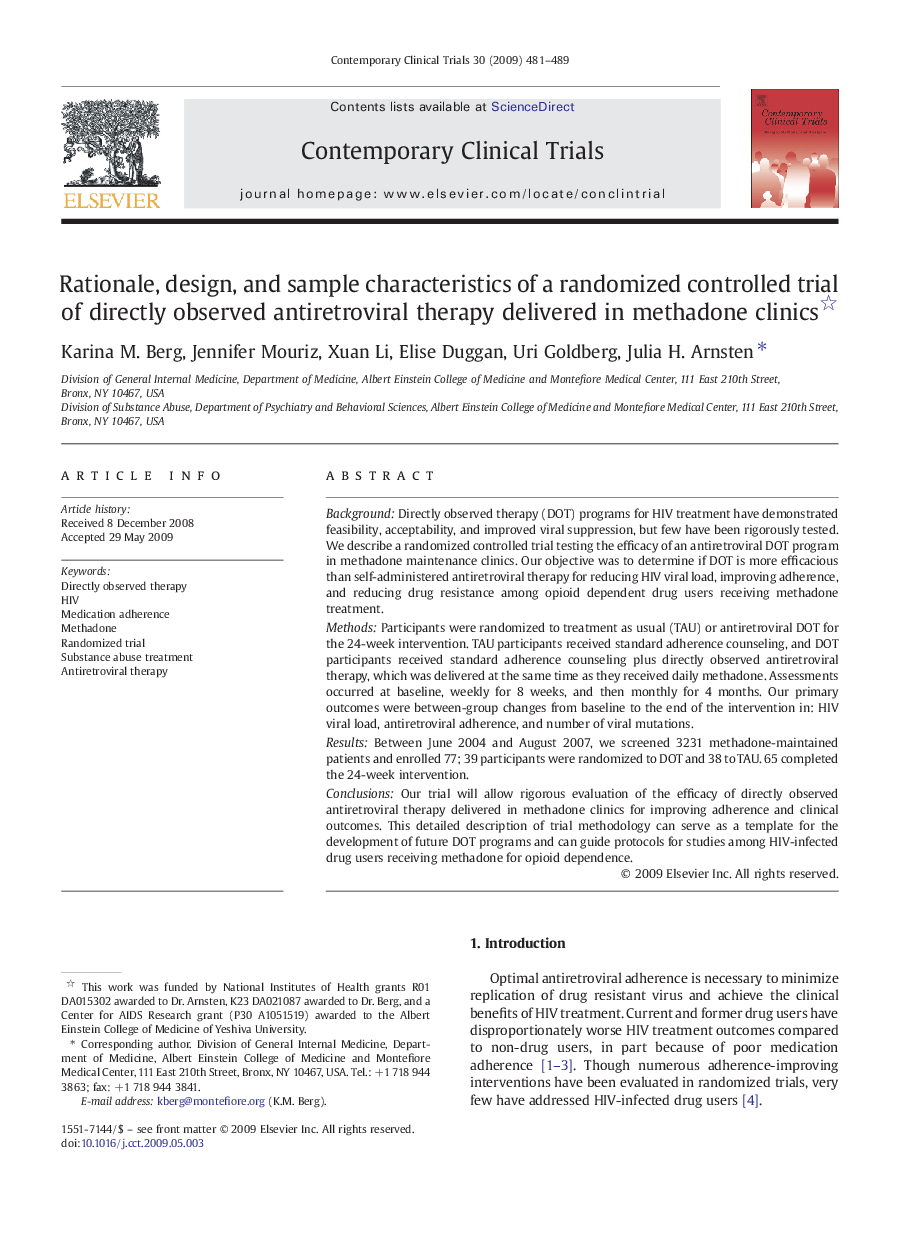| Article ID | Journal | Published Year | Pages | File Type |
|---|---|---|---|---|
| 3463198 | Contemporary Clinical Trials | 2009 | 9 Pages |
BackgroundDirectly observed therapy (DOT) programs for HIV treatment have demonstrated feasibility, acceptability, and improved viral suppression, but few have been rigorously tested. We describe a randomized controlled trial testing the efficacy of an antiretroviral DOT program in methadone maintenance clinics. Our objective was to determine if DOT is more efficacious than self-administered antiretroviral therapy for reducing HIV viral load, improving adherence, and reducing drug resistance among opioid dependent drug users receiving methadone treatment.MethodsParticipants were randomized to treatment as usual (TAU) or antiretroviral DOT for the 24-week intervention. TAU participants received standard adherence counseling, and DOT participants received standard adherence counseling plus directly observed antiretroviral therapy, which was delivered at the same time as they received daily methadone. Assessments occurred at baseline, weekly for 8 weeks, and then monthly for 4 months. Our primary outcomes were between-group changes from baseline to the end of the intervention in: HIV viral load, antiretroviral adherence, and number of viral mutations.ResultsBetween June 2004 and August 2007, we screened 3231 methadone-maintained patients and enrolled 77; 39 participants were randomized to DOT and 38 to TAU. 65 completed the 24-week intervention.ConclusionsOur trial will allow rigorous evaluation of the efficacy of directly observed antiretroviral therapy delivered in methadone clinics for improving adherence and clinical outcomes. This detailed description of trial methodology can serve as a template for the development of future DOT programs and can guide protocols for studies among HIV-infected drug users receiving methadone for opioid dependence.
